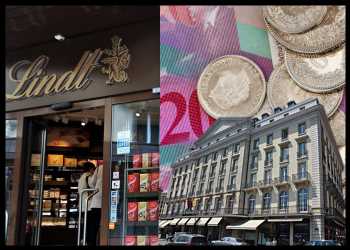Swiss Economy Rebounds In Q1

The Swiss economy rebounded at a faster-than-expected pace at the start of the year on robust domestic demand, government data showed on Tuesday.
Gross domestic product grew 0.3 percent sequentially in the first quarter after stagnating in the fourth quarter of 2022, the State Secretariat for Economic Affairs, or SECO, reported. The rate also exceeded economists’ forecast of 0.1 percent expansion.
GDP, adjusted for sports events, logged a quarterly growth of 0.5 percent after posting a nil growth.
The expenditure-side of GDP showed that private consumption, investment and exports were the major drivers of growth.
Private spending registered a faster increase of 0.6 percent following a 0.2 percent rise a quarter ago. There was significant increase in consumer spending on services, such as mobility and tourism.
At the same time, government consumption remained flat after a 0.1 percent drop.
The quarterly growth in equipment and software investment improved to 2.6 percent from 0.1 percent, driven by higher investment in research and development. Meanwhile, construction investment was down 0.1 percent.
Exports of goods surged 4.0 percent, while shipment of services decreased 5.5 percent. At the same time, imports of goods moved up 5.4 percent and that of services gained 1.4 percent.
Overall, the contribution of foreign trade to GDP growth was slightly negative, data showed.
On a yearly basis, economic growth slowed marginally to 0.6 percent from 0.7 percent. The rate came in line with expectations.
Despite the rebound, the Swiss economy is set to slow over the remainder of the year as the effects of monetary tightening intensify, Capital Economics’ economist Adrian Prettejohn said.
In March, the Swiss National Bank had projected the economy to grow around 1 percent this year.
The outlook for the economy continued to darken, a survey data from the Zurich-based KOF Swiss Economic Institute showed Tuesday. The KOF Economic Barometer fell to 90.2 in May from revised 96.4 in April. The indicator declined for the second straight month.
Source: Read Full Article
